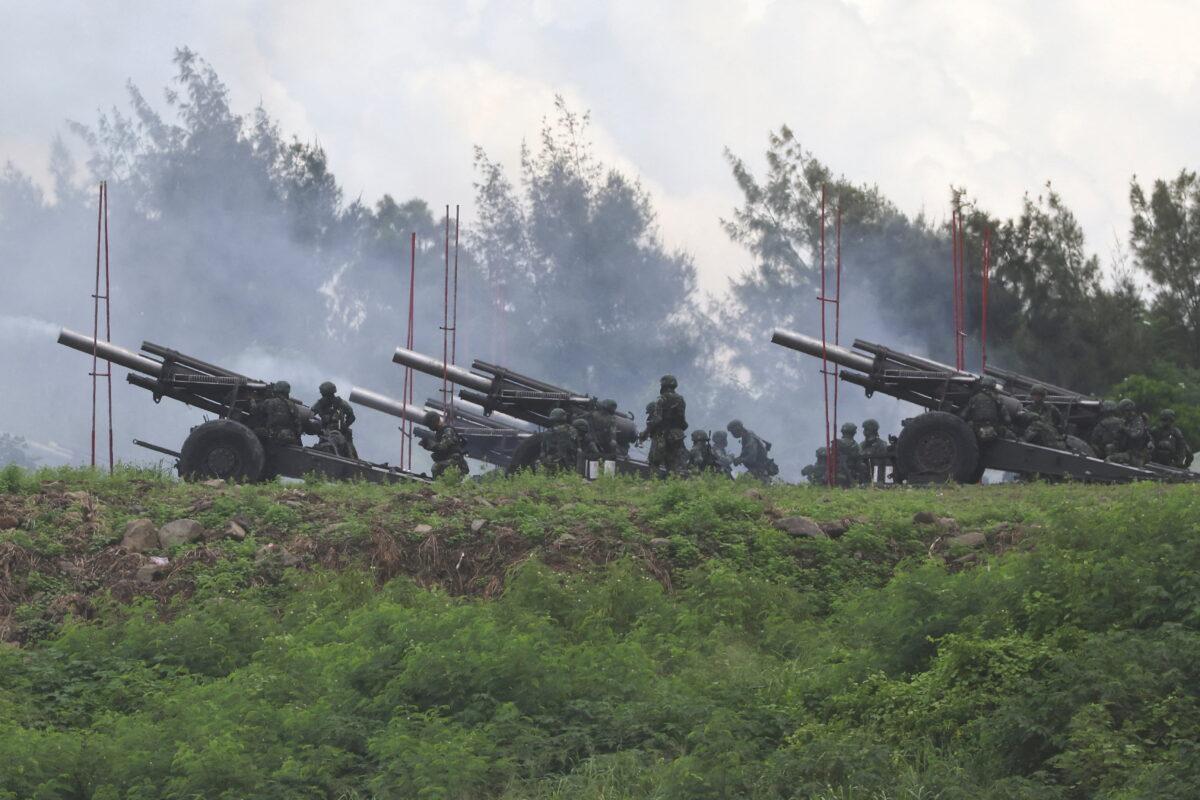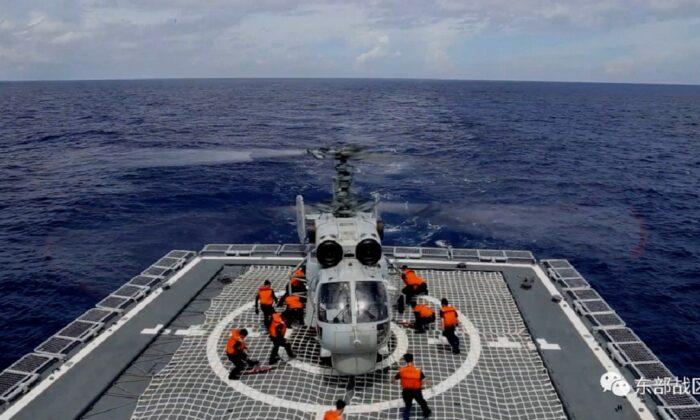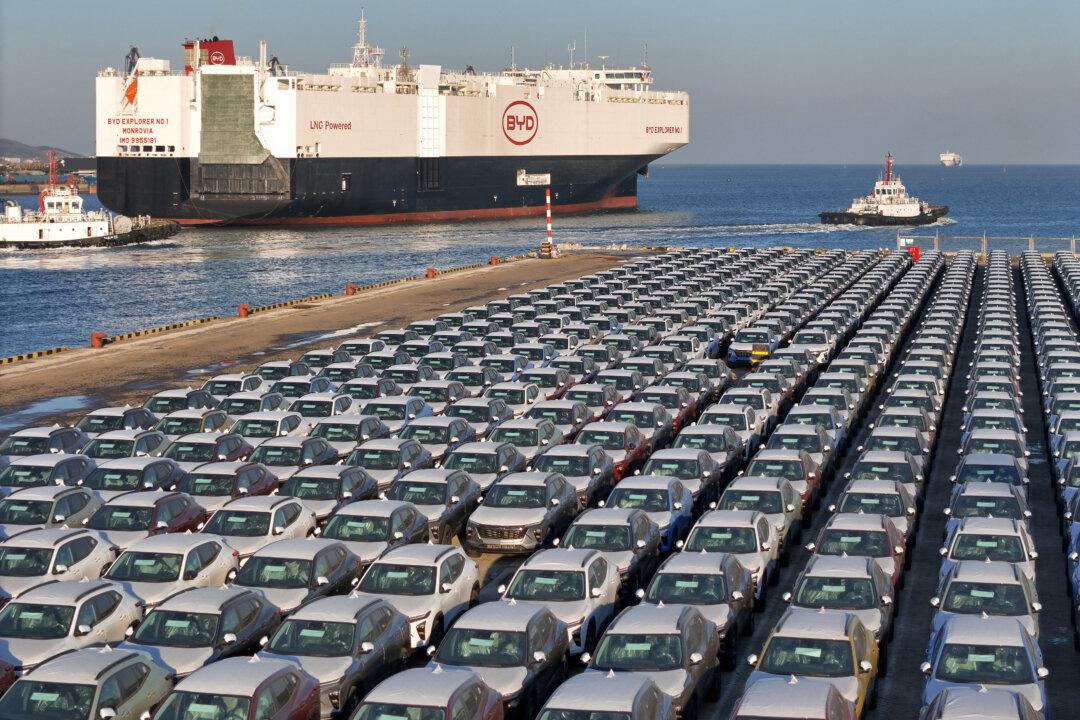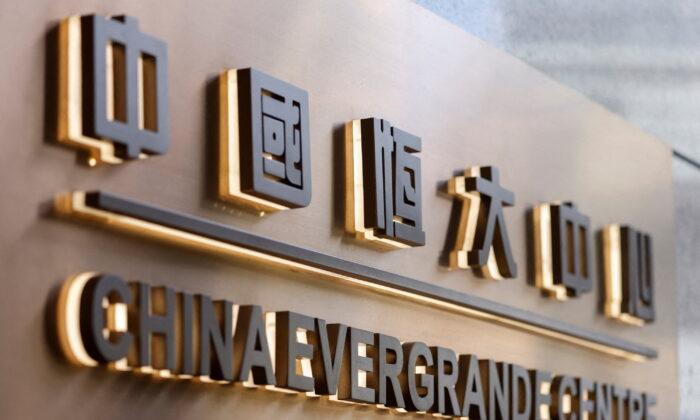The Chinese regime’s latest military drills near the Taiwan Strait suggest that it is taking preparations “very seriously” to achieve its goal of taking over Taiwan, according to Carl Schuster, former director of operations at U.S. Pacific Command’s Joint Intelligence Center. However, the regime must achieve air and sea supremacy before it can launch a full-scale invasion of the island nation, he added.
During a military drill in August, the Chinese military used civilian ferries to transport attack ships in a mock amphibious landing to seize Taiwan.
The main ferry, code-named Bo Hai Heng Tong, is a 15,000-ton multipurpose cargo ship. Its cargo-carrying capacity is nearly three times that of the U.S. San Antonio-class amphibious warship (LPD-17). The ferry’s internal parking lanes are 1.6 miles long and 3 meters wide, spread over three decks.
Combining amphibious warships with civilian vessels is not new to the Chinese Communist Party’s (CCP) navy. Over the years, many civilian ships have been used to transport military supplies, while some carry artillery on deck for shore bombardment. However, their use to transport attack ships is a recent development.
“The first time I saw it was two years ago. They did it on a very small scale. This last exercise was slightly larger, and I think the next one will be larger still.”
The retired Navy captain said the latest drill indicates the CCP can land more forces more quickly across a broader beach.
“[China’s] landing force can be increased significantly, [it] just takes a lot of practice,” he said. “They’re taking preparations for the invasion of Taiwan very seriously.”
He argued that for an amphibious landing to succeed, the CCP must have air and sea supremacy.
“Until the [Chinese troops] reach the beach, [they have] to go over the Taiwan Strait. To do that, they need to achieve superiority over Taiwan and air supremacy over the Taiwan Strait,” he said. “Plus, they need to be able to ensure submarines can’t reach the amphibious task. So the amphibious [landing] capability reflects the final stage of an assault on Taiwan. The intermediate stages are seizing control of the air over Taiwan and seizing control of the air and sea over the Taiwan Strait.”
Schuster said that the Chinese leadership hopes to force Taiwan to accept “reunification” without the People’s Liberation Army (PLA) having to invade the island by amphibious assault.
Taiwan’s Preparation Is Critical
Director of National Intelligence Avril Haines testified to Congress in May that the threat of Taiwan’s “reunification” with mainland China between now and 2030 was “acute.”However, Schuster believes that if Taiwan actively builds up its military, maintains the readiness and strength of its forces, and the United States stands firm in its commitment to Taiwan, Beijing will not take action because “they want a quick, easy victory, not a long drawn outside.”
He noted that there are only a few landing beaches in Taiwan.
“It all boils down to how ready the Taiwanese are to contest the air and sea space,” he said. “If the answer is yes, then the invasion will come. If the answer is no, then it boils down [to] the fighting on the beach, and the fighting on the beach is a matter of combat capability and will.”
“China has to overcome minefields both in the water and on the beach, and Taiwanese people are committed to their defense,” he continued, saying that he doesn’t believe the CCP will succeed by 2030.

Will the US Defend Taiwan?
Schuster hopes the United States will defend Taiwan in the event that the CCP launches an attack.“If we don’t help Taiwan defend itself, then we will have abandoned a free democratic country, and that loses credibility,” he said.
“Plus, we have been defending Taiwan or promising to defend the Taiwanese people now for over fifty years. If we fail to keep that promise, that undermines our credibility elsewhere in Asia.
“If Taiwan falls to China, and China has a doorway to the central Pacific, it can cut off sea supplies to Japan and the Philippines and establish hegemony over west Pacific and East Asia.
“So, from a strategic perspective, we have to defend Taiwan. From a geopolitical perspective and credibility perspective, we have to defend Taiwan.”
“Today, the world faces a choice between democracy and autocracy,” she said. “America’s determination to preserve democracy here in Taiwan and around the world remains ironclad.”
‘Strategic Ambiguity’
Biden’s statement appears to be a change from the “strategic ambiguity” that has characterized the U.S. policy on Taiwan over the past few decades. Under the policy, U.S. leaders would neither confirm nor deny whether the United States would protect Taiwan militarily in an attempt to maintain a peaceful status quo: to deter Chinese aggression and dissuade Taiwan from seeking independence.Schuster believes that the CCP’s military threats have forced the United States to abandon “strategic ambiguity.”
“[CCP leader] Xi Jinping launches missiles around Taiwan, launches military threats around Taiwan, and continues to do so,” he said. “So Biden is letting Xi Jinping know that behavior is not acceptable.
“The United States will counter it if it goes into conflict, so the strategic ambiguity ended not because we sought conflict with China, but because Xi’s behavior forced us off the fence.”





Friends Read Free